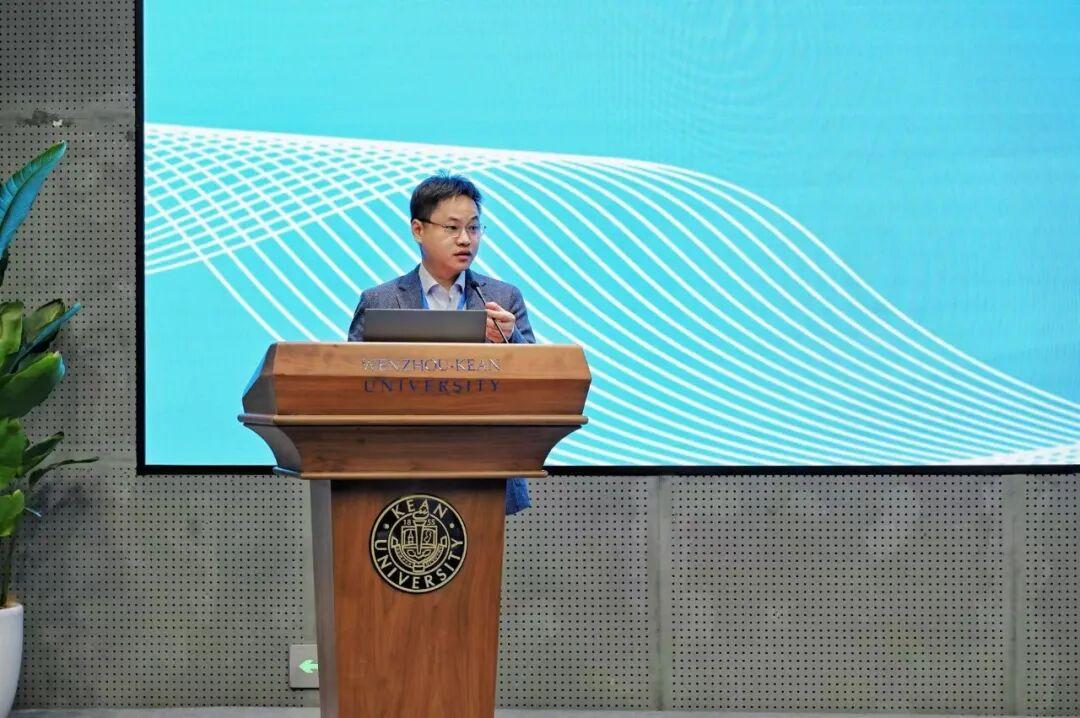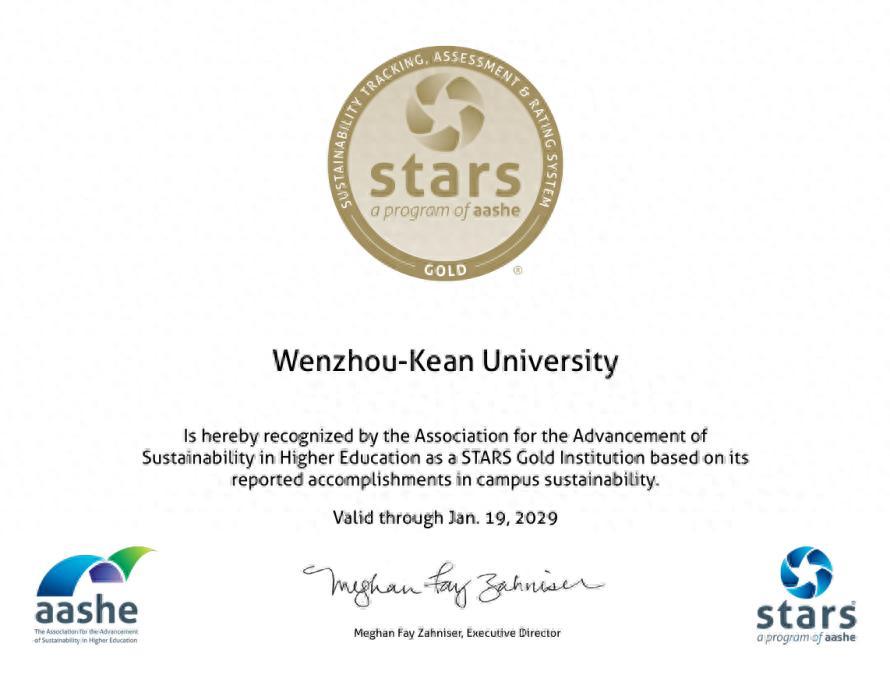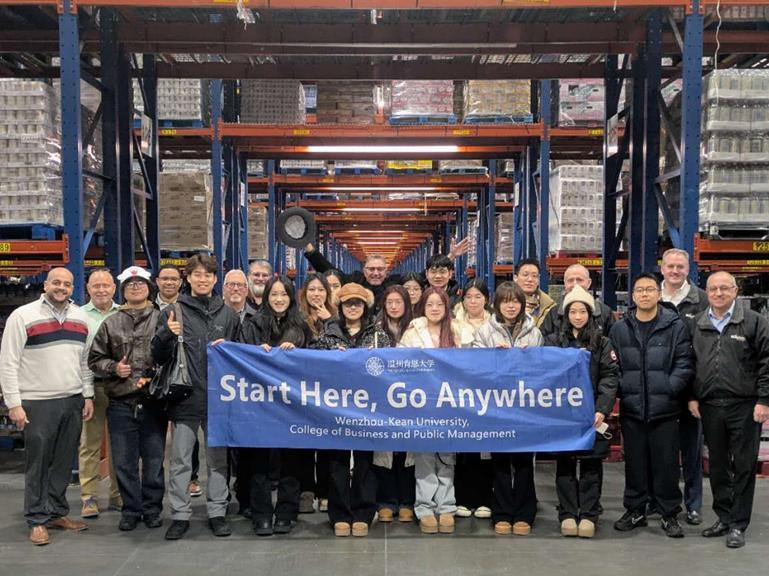
Amrita Kaur
-
职位:心理系主任
-
学院:人文学院
-
办公室:GEH B213
-
邮箱:
Educational Background
Ph.D., Educational Psychology
Biography
Amrita Kaur is an Assistant Professor and Program Director for the School of Psychology in the College of Liberal Arts at Wenzhou-Kean University. She earned her PhD in Educational Psychology from Universiti Utara Malaysia in 2010 and brings over 27 years of teaching experience across K–12 and higher education. Her career includes serving as a teacher, teacher trainer specializing in primary instructional pedagogies, Head of School in Thailand (2000–2013), and since 2013, as a higher education researcher and academic in Malaysia and China.
She is a Fellow of the Higher Education Academy (FHEA), UK, and in 2020 was awarded a Fellowship from the International Society for the Scholarship of Teaching and Learning (ISSoTL), followed in 2022 by the Recognition of Supervisory Practice from the UK Council for Graduate Education (UKCGE). These international recognitions highlight her sustained commitment to advancing teaching, learning, and mentorship in higher education.
Amrita has actively trained early-career researchers in the Scholarship of Teaching and Learning (SoTL) across Malaysian and Chinese universities. She is the editor of Scholarship of Teaching and Learning in Asia and has an upcoming book, Cases on US-China Study Abroad Programs in Higher Education (Dec 2025). In recognition of her expertise, Dr. Amrita Kaur has been invited to serve on the editorial boards of leading international teaching and learning journals, including The International Journal of Higher Education Research, Journal of College Student Development (JCSD), International Journal of Students as Partners (IJSaP), and Malaysian Journal of Learning and Instruction (MJLI).
To date, Amrita has completed 36 research projects, including international collaborations, and has published over 80 peer-reviewed journal articles, 15 book chapters, and two books. Her scholarship has been recognized with the Best Paper Award in Humanities and Social Sciences twice (2017 & 2022) from the Scientific Publications Council of the Ministry of Education, Malaysia. She has successfully supervised five doctoral students, with three more currently under her guidance.
Amrita is deeply committed to mentoring students through research, instructional innovation, and community engagement. She has co-published with students in high-impact journals, guided them to achieve research awards, and led projects that integrate academic learning with service to local schools and communities. Beyond academia, she has also conducted motivational and therapeutic coaching sessions for school students in China, many of which were carried out in collaboration with her university students, reflecting her belief in student-faculty partnerships as a driver of growth and impact for student success and engagement.
Research interests
As an educational researcher, her work investigates teaching, learning, and assessment processes through the lens of educational psychology. She examines how these processes shape student motivation, engagement, learning outcomes, and well-being, with particular attention to the perspectives of teachers, parents, and school leaders in Asian contexts. Her research, conducted mainly in China and the ASEAN region, applies both qualitative and quantitative methodologies, including advanced statistical approaches such as multivariate analysis and predictive modeling.
Selected Publications/scholarly and creative work
- Kaur, A., Zou, W., Lu, K., Hou, S., Yang, H., & Noman, M. (2025, in press). Student–faculty partnership in research: Evaluating a university-wide initiative for scalability in a Sino-American university. Innovations in Education and Teaching International.
[Indexed in SSCI]
- Noman, M., Kaur, A., Mullick, J., & Wang, H. (2025, in press). Navigating dual narratives: The life-stories of successful women leaders in higher education. Higher Education Research & Development.
[Indexed in SSCI]
- Kaur, A., Noman, M., Lin, Y., Zhou, Q., Lu, K., & Zhou, Y. (2024). The interplay of academic emotions and teacher interpersonal behaviors on the psychological well-being of university students in China. Educational Psychology. https://doi.org/10.1080/01443410.2024.2387550
(SSCI)
- Hang, B., & Kaur, A.* (2024). Assessment of Creativity: Adaptation and Validation of the Runco Ideational Behavior Scale for Vietnamese Students. Psychology of Aesthetics, Creativity, and the Arts
(SSCI)
- Kaur, A., Lin, Y., Lu, K., Zhou, Q., Zhou, Y., & Noman, M. (2024). Chinese Students’ Conception of Psychological Need Support and Need Frustration: A Qualitative Analysis from a Self-Determination Theory Perspective. Asia-Pacific Education Researcher, 1-23. https://doi.org/10.1007/s40299-024-00844-3
(SSCI)
- Noman, M., Xu, J., Kaur, A., & Fang, K. (2024). The interplay of contextual leadership and teacher-related organizational outcomes: The mediating role of group cohesion. Educational Management Administration & Leadership, 0(0). https://doi.org/10.1177/17411432241230662
(SSCI)
- Kaur, A., Kumar, V., & Noman, M. (2023, November 15). The Viability of Doctoral Thesis and Oral Exams in Students' Native Language. Journal of Language, Identity & Education. https://doi.org/10.1080/15348458.2023.2271976
(SSCI)
- Wu, W., Kaur, A.,Liang, Q. Xu,K.,Mei, Y, Yei,M.& Chen,Li (2023 ). Development and Validation of the Parental Anxiety over Children’s Education Scale Evidence from China. Journal of Child and Family Studies. 76, 101-231. https://doi.org/10.1007/s10826-023-02626-9
(SSCI)
- Kaur, J & Kaur, A. (2023). Is teaching and learning in Chinese higher education classrooms internationalized? Perspectives from international students in China. Higher Education Research & Development, 42(5), 1283–1297. https://doi.org/10.1080/07294360.2023.2197196
(SSCI)
- Noman, M., Kaur, A., Mullick, J., Ran, L. (2023). Navigating New Terrain: First-Year Chinese Students’ Transitionary Experiences in a Sino-US Joint Venture University in China. International Journal of Chinese Education. 12(2),1-16,DOI: 10.1177/2212585X231175167
(Scopus)
- Mei, S., Kaur, A.,* Yang, A., Xu, K., Wu, W., Zheng, T., Ying, L., Zou, Y., Ji, Z., Ye, Y., & Chen, L. (2023). Development and validation of the sources of parental anxiety in children’s education scale. Studies in Educational Evaluation, 76, 101231. https://doi.org/10.1016/j.stueduc.2022.101231
(SSCI)
- Kumar, V, Kaur, A. (2022). PhD orals from the convenors’ perspective: implications for academics and candidates. International Journal for Academic Development. 29:1, 62-74, https://doi.org/10.1080/1360144X.2022.2051516
(SSCI)
- Awang-Hashim, R., Kaur, A., Yusof, N. et al. (2022). Reflective and integrative learning and the role of instructors and institutions—evidence from Malaysia. Higher Education. 83 (3), 635-654.https://doi.org/10.1007/s10734-021-00689-5
(SSCI)
- Kaur, A., Kumar, V., & Noman,M (2022): Partnering with doctoral students in research supervision: opportunities and challenges, Higher Education. Research & Development, 41 (3), 789-803.DOI: 10.1080/07294360.2020.1871326
(SSCI).
- Noman,M., Kaur,A. & Nafees, N. (2021).Covid-19 fallout: Interplay of financial stress and employment anxiety stressors and support on academic functioning of Malaysian university students. Children and Youth Services Review. 125, 1-7. https://doi.org/10.1016/j.childyouth.2021.106001
(SSCI)
- Kumar, V.,Sanderson., & Kaur, A. (2021). Investigating the role of convenor in the Ph.D. Viva. Assessment & Evaluation in Higher Education. 46 (7),1080-1091. https://doi.org/10.1080/02602938.2020.1841092
(SSCI ).
- Abdulaziz, A., Noman,M., & Kaur, A. (2020 ). Core leadership practices of school principals in the kingdom of Saudi Arabia, Educational Management Administration & Leadership. 48 (2), 387-423.
(SSCI)
- Kaur, A., Awang-Hashim, R. & Kaur, M. (2019): Students’ experiences of co-creating classroom instruction with faculty- A case study in eastern context, Teaching in Higher Education. 24(4), 461-477.
(SSCI).
- Kaur, A., Noman, M., & Awang-Hashim, R (2018). The role of goal orientations in students’ perceptions of classroom assessment in higher education. Assessment & Evaluation in Higher Education. 43(3), 461-472.
(SSCI).
- Kaur, A., Noman, M. & Nordin, H., (2017). Inclusive assessment for linguistically diverse learners in higher education. Assessment & Evaluation in Higher Education, 42(5), 756-771.
(SSCI).
- Kaur, A., Noman, M, & Awang-Hashim, R (2016). Exploring strategies of teaching and classroom practices in response to challenges of inclusion in a Thai school: A case study. International Journal of Inclusive Education. 20(5), 474-485.
(SSCI).
- Awang-Hashim, R., Kaur, A., & Noman, M. (2015). The interplay of socio-psychological factors on school engagement among early adolescents. Journal of Adolescence. 45, 214-224.
(SSCI).
Courses
- Statistics in Psychology
- Experimental Psychology
- Seminar on contemporary issues in Psychology
- Psychology of Adolescents
- General Psychology
- Positive Psychology
- Social Psychology
- Personality Psychology




